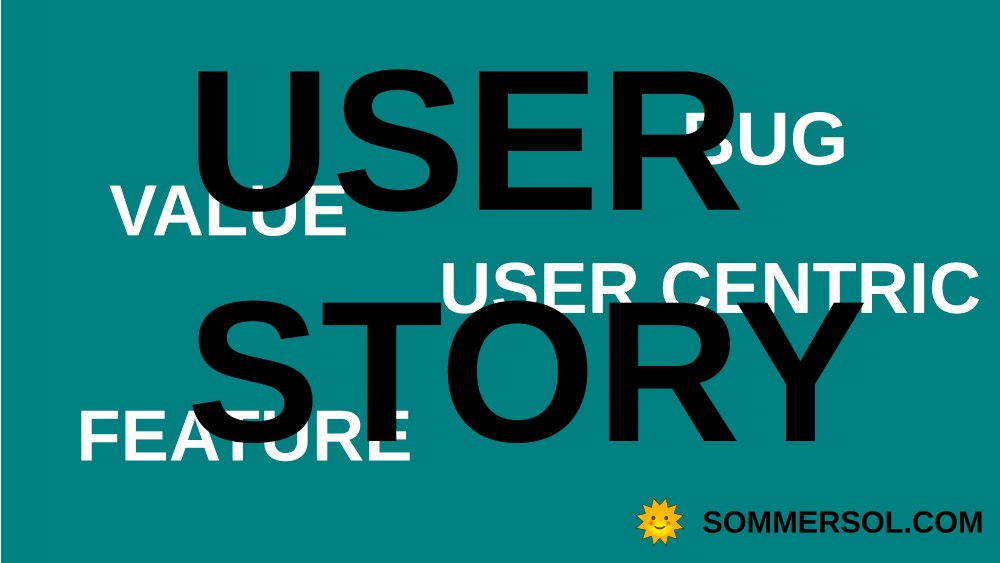
Outcome-Driven Feature Prioritization for Agile Teams | Alfa Sommersol
Learn how focusing on business outcomes instead of features can lead to better decision-making, faster delivery, and more value for your customers.

Why is Agile relevant in the quantum realm, and how does it help researchers navigate this complex field? In the world of quantum computing, the continual interplay of conjecture, experimentation, and interpretation echoes Agile's iterative principles.
Photo: Michael Dziedzic on Unsplash
Imagine embarking on a voyage into the unknown, venturing into the realms of quantum computing as a team lead. Equipped with the principles of agility, you navigate through the complexities of the quantum universe, exploring its mysteries and pushing the boundaries of scientific understanding. In this article, we will delve into the intersection of quantum computing and agile methodologies, uncovering how the iterative ethos of Agile aligns with the experimental spirit of quantum research.
Quantum research shares a fundamental connection with Agile methodologies, both in terms of their iterative nature and their pursuit of continuous improvement. Just as Agile emphasizes adaptability, learning, and innovation, these principles find resonance in the realm of quantum computing. Let us embark on this journey of uncertainty, where Agile serves as our compass in deciphering the quantum mysteries.
Quantum research, by its very nature, demands agility. The landscape of quantum computing is marked by uncertainty, with ever-evolving theories, experimental results, and interpretations. In such an environment, Agile's responsiveness to change and its preference for working solutions over extensive planning become invaluable. Agile methodologies provide a framework that enables quantum researchers to navigate the complexities of their field, adapt to new insights, and make meaningful progress.
Quantum experiments bear a striking resemblance to Agile sprints. Each quantum experiment is akin to a sprint, representing an iterative step towards unraveling the mysteries of the quantum universe. Just as Agile teams work in short cycles to deliver incremental value, quantum researchers design and conduct experiments in iterative phases. They formulate hypotheses, perform experiments, analyze results, and refine their understanding based on the outcomes. This iterative approach allows researchers to continuously build upon their knowledge, fostering an environment of discovery and innovation.
In the realm of quantum computing, research teams operate much like Agile Scrum teams. Each team member has distinct roles and responsibilities, contributing to the overall mission of unraveling quantum mysteries. The team lead assumes a role similar to that of a Scrum Master, facilitating collaboration, removing obstacles, and ensuring the team's productivity. Agile frameworks, such as daily check-ins and sprint planning, provide the team with structure and enable effective communication and coordination.
Quantum computing research shares a fundamental trait with Agile projects—the need for adaptability. Agile projects maintain dynamic backlogs that evolve with each iteration, responding to changing requirements and customer feedback. Similarly, quantum computing research maintains a dynamic backlog of experiments and hypotheses, adjusting the trajectory based on emerging insights and outcomes. This Agile-inspired approach allows researchers to adapt their focus, pivot their experiments, and align their efforts with the ever-evolving landscape of quantum research.
Reflection is a cornerstone of Agile methodologies, and it holds equal importance in quantum computing. Just as Agile teams conduct retrospectives to reflect on their work, quantum researchers engage in post-experiment analysis and discussions. These discussions aim to identify successes, failures, and opportunities for improvement. By fostering a culture of continuous learning and growth, quantum research teams ensure that insights gained from each experiment contribute to the overall advancement of knowledge in the field.
While quantum computing research primarily focuses on algorithms and theoretical advancements, hardware development plays a crucial role in realizing the potential of quantum computers. IBM Quantum and Google have embraced Agile methodologies in hardware development to push the boundaries of quantum computing capabilities.
IBM Quantum's hardware development journey exemplifies the principles of agility. The team at IBM Quantum has been relentlessly working to improve the performance of quantum computers, pushing the limits of qubit count and quantum volume. Their roadmap includes the development of advanced processors, with increasing qubit counts, to enhance the capabilities of quantum computing. Throughout this journey, they have embraced an iterative approach, experimenting with new ideas, discarding what doesn't work, and integrating successful advancements into stable devices.
Google's breakthrough in quantum computing, known as quantum supremacy, showcases the immense power of quantum computers over traditional supercomputers. In a paper published by Google researchers, they claim to have developed a quantum computer that can perform calculations in seconds that would take the best existing supercomputers 47 years. This breakthrough demonstrates the superior capabilities of quantum computers and establishes their potential to outperform conventional rivals.
While quantum computing brings unprecedented computing power, it also poses challenges to encryption systems. The ability of quantum computers to break conventional encryption algorithms has raised concerns about data security. As quantum computing continues to advance, researchers and industry experts are working on developing quantum-resistant encryption methods to ensure data security in the quantum era.
Collaboration and knowledge sharing play a vital role in the advancement of quantum computing. IBM Quantum and Google, along with other research institutions and companies, recognize the importance of open collaboration to accelerate progress in the field. Through collaborative efforts, they aim to unlock the full potential of quantum computing and drive innovations that can address complex global challenges.
As a team lead in quantum computing, embracing Agile principles is key to navigating the uncertainties of the quantum realm. The complex nature of quantum research requires adaptability, continuous learning, and collaboration. By incorporating Agile methodologies, you can foster a culture of innovation and growth within your team. Here are some key strategies for agile leadership in quantum research:
Quantum research is characterized by its ever-evolving nature, with new discoveries and breakthroughs constantly reshaping the field. As a team lead, it is essential to embrace adaptability and iteration. Encourage your team members to experiment with new ideas, iterate on their hypotheses, and adjust their course based on emerging insights. By fostering a culture of adaptability, you enable your team to navigate the uncertainties of quantum research effectively.
Continuous learning is a fundamental aspect of Agile methodologies, and it is equally important in quantum research. Encourage your team members to reflect on their experiments, share their findings, and engage in discussions to identify areas for improvement. Create a safe and supportive environment where team members feel comfortable sharing their successes, failures, and lessons learned. By fostering a learning environment, you cultivate a culture of growth and advancement within your team.
Quantum research often requires expertise from multiple disciplines, including physics, computer science, and mathematics. As a team lead, promote collaboration and cross-disciplinary engagement within your team. Encourage knowledge sharing, facilitate communication between team members, and create opportunities for interdisciplinary collaboration. By breaking down silos and fostering collaboration, you enable your team to leverage diverse perspectives and expertise to tackle complex quantum challenges.
Introduce Agile practices and frameworks within your team to streamline processes and improve productivity. Implement daily check-ins, sprint planning sessions, and retrospectives to facilitate effective communication, track progress, and identify areas for improvement. As a team lead, you play a crucial role in ensuring that Agile practices are understood and embraced by your team members. By providing guidance and support, you empower your team to leverage Agile methodologies to their full potential.
Agile methodologies encourage innovation and risk-taking, and these principles are equally relevant in quantum research. Encourage your team members to think outside the box, explore unconventional ideas, and take calculated risks. Foster a culture that values creativity and rewards innovative thinking. By empowering your team members to push the boundaries of quantum research, you pave the way for groundbreaking discoveries and advancements in the field.
The intersection of quantum computing and Agile methodologies presents a unique opportunity for innovation and advancement. By harnessing Agile principles in the context of quantum research, you can navigate the complexities of the quantum realm, adapt to changing circumstances, and drive meaningful progress. As a team lead, embracing Agile leadership principles allows you to foster a culture of adaptability, continuous learning, and collaboration within your team. Together, Agile and quantum computing pave the way for groundbreaking discoveries and advancements in the fascinating world of quantum mysteries.

Learn how focusing on business outcomes instead of features can lead to better decision-making, faster delivery, and more value for your customers.

Learn how to write user stories and prioritize them effectively in agile development, including templates for feature requests and bug reports.

This guide provides valuable insights and tips for anyone interested in understanding the role of a Scrum Master.